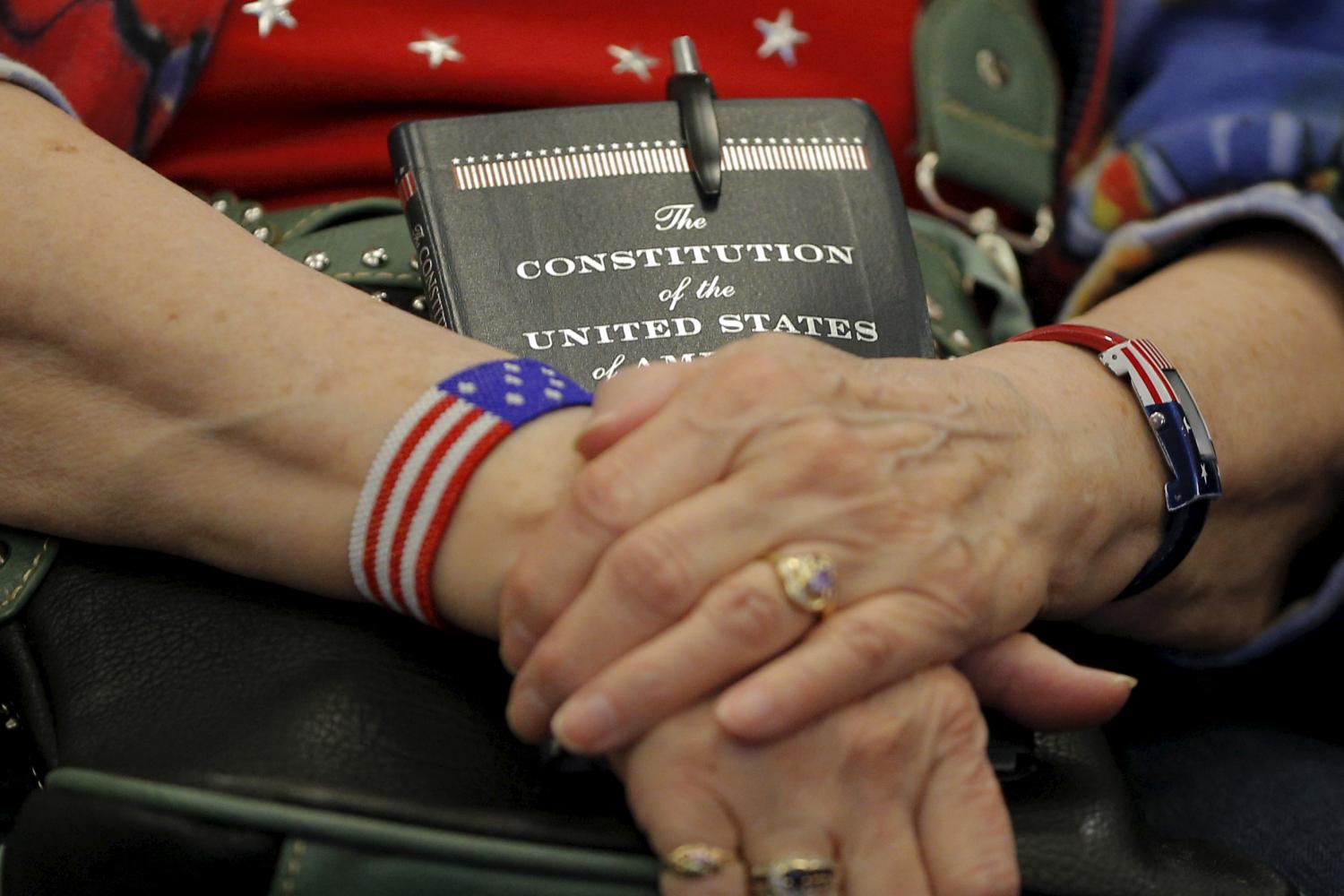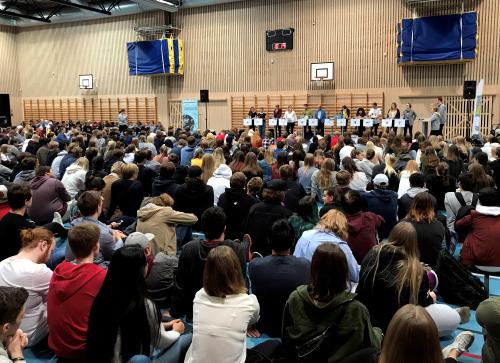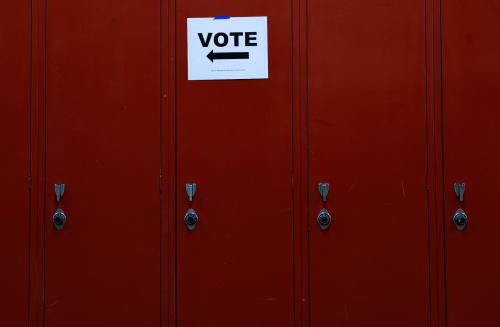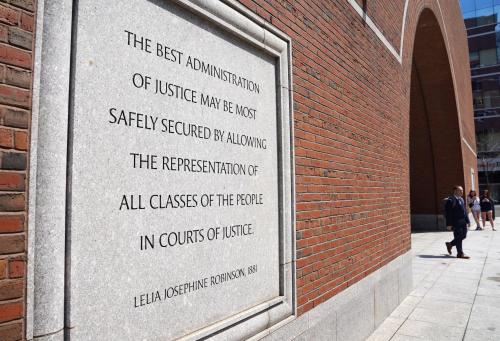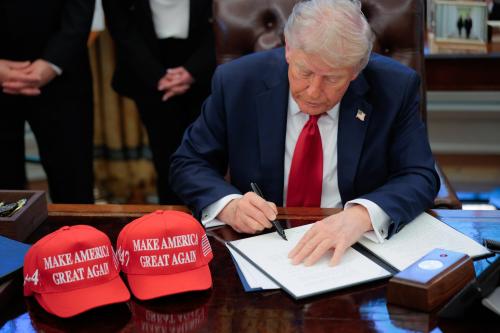Millions of Americans, on both left and right, either don’t understand or don’t buy key democratic principles like freedom of speech. In a recent Pew Research Center study, 53 percent of all Americans were rated “less committed” to representative democracy or not democratic at all. Given that nearly 85 percent of all U.S. adults have at least high school educations, it is safe to say that many in this group took at least one civics, government, or American history class.
So, what went wrong? Nobody can say for sure, but it is clear that civics classes focused on nuts and bolts (the three branches of government, how a bill becomes a law, how the president, senators, and representatives are elected, etc.) do little to illuminate the deeper principles behind those arrangements.
There truly are underlying principles, meant to ensure: that current policies are made legitimately; that even those on the losing side in an election or policy dispute can realistically hope not to be abused by the majority; and to be in a position to compete successfully in the future. These principles are simple but not obvious. They come from hard thinking about the linkages between actions taken today and the likelihood of there being an open, competitive political system in the future.
The deeper principles make up the “unwritten Constitution,” something that even the pedagogically most sophisticated civics classes seldom touch. As a political scientist and sometimes-teacher, I can’t remember a high school or college course in American government that made more than passing mention of such issues. Even for political science students, these topics were relegated to courses in political philosophy or public choice theory.
Today, the unwritten norms are the province of lawyers and philosophers. But citizens need to know why they matter. Any 18-year-old should have encountered the following questions and be able either to explain or dispute the answers to questions like:
- How does denying someone’s freedom of speech put members of the majority at risk?
- Is there any harm in denying some persons or groups the right to vote?
- What’s the reason for the norm that defeated candidates for office accept the results, and not question the legitimacy of the election?
- What’s the downside of winning candidates’ routinely prosecuting and imprisoning their defeated opponents?
- Is there any good reason why members of Congress traditionally avoid calling one another thieves, liars, and traitors?
- Is there any reason that presidents and governors shouldn’t be able to tell judges how to decide cases?
- Is there any risk to the general public if elected officials can knowingly profit from policies they adopt while in office?
More states are requiring civics courses, and the civics education community has recommended teaching high school students via discussions, simulations, and service-learning experiences out of school. These good proposals imply, but don’t make explicit, the importance of teaching about democratic norms. And in the absence of clear guidance, teachers can find it a lot easier to focus on government structure and preach love and harmony than to acknowledge that some conflicts among citizens are real, and to demonstrate the importance of institutions that protect today’s losers’ chances of winning in the future.
But that’s the kind of civics education America needs. At a minimum, states should require every potential high school graduate to pass a test on the reasoning behind core democratic values, and civics teachers should be evaluated on what proportion of their students pass. Getting the passing rates up might take some time, since teachers would have to understand the principles and be willing to wade into issues and field challenges from offended parents. But now is the time to make the goals clear.
The Brookings Institution is committed to quality, independence, and impact.
We are supported by a diverse array of funders. In line with our values and policies, each Brookings publication represents the sole views of its author(s).

